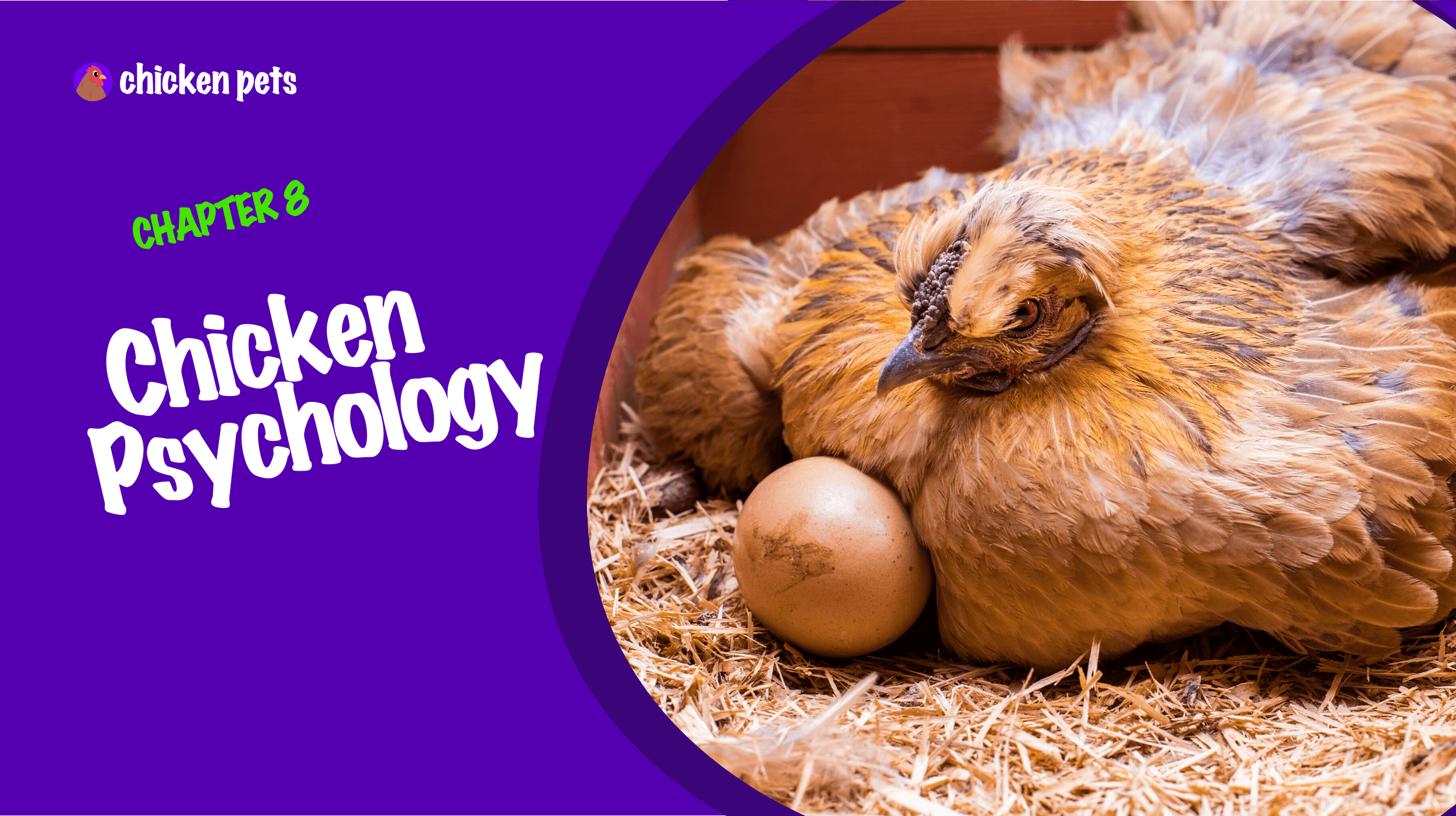Welcome to the world of chicken psychology! If you’re considering keeping backyard chickens, understanding their unique and fascinating behavior is just as important as providing food and shelter. Who doesn’t want to know what their feathered friends think and feel? With insight into chicken psychology, you can create a happy and healthy environment for your flock. So, let’s dive into the quirky and charming world of chicken behavior!
Smarter Than Your Average Bird: Understanding Chicken Intelligence
Contrary to popular belief, chickens are not just feathered spheres of joy that roam around, clucking and pecking at the ground. They are intelligent creatures who can learn, problem-solve, and even perform tricks. Studies have shown that chickens can remember the location of food, navigate mazes, and perform basic arithmetic.
Now, this doesn’t mean your backyard chickens will be solving calculus equations or composing symphonies anytime soon, but it does mean they have a level of intelligence that should not be underestimated. Chickens have a remarkable ability to recognize and remember individuals, including both their fellow chickens and humans. They can even differentiate between familiar and unfamiliar faces! Like humans and other primates, they can learn through observation and imitation. For example, suppose a chicken sees another chicken performing a specific behavior, such as opening the door to get to the food. In that case, it will likely remember and be able to replicate the behavior in the future.
Providing an enriched environment for your chickens can help promote their intelligence and overall well-being. This can include providing hiding places, climbing structures, and plenty of foraging opportunities. Doing so will improve your chickens’ quality of life and allow them to flex their mental muscles.
Chickens have a good memory and can remember the location of food for up to five months. They are also capable of basic problem-solving and can figure out how to get to a desired object, such as food, even if they must navigate through obstacles to reach it. They have a strong sense of self-preservation and can make decisions that benefit their survival and well-being. In some cases, chickens have even been trained to perform simple tricks, such as coming when called or ringing a bell to signal they want to be fed.
Their intelligence goes beyond recognition and memory. Chickens have an excellent memory, recognize up to 100 individual faces, including humans, and remember them for years. They are capable of basic arithmetic and can understand more and less. They can also distinguish between different colors, shapes, and patterns. Chickens have a sophisticated social hierarchy; they can keep track of their social status in the flock and use this information in their interactions with other birds. Some researchers have found that chickens exhibit self-control. They can delay gratification and wait for a more desirable reward. They can even anticipate the future, plan ahead, and make decisions based on their previous experiences.
So, don’t be too surprised the next time you see your backyard chickens performing some clever feat. They just might be more intelligent than you think!
The High Society of Chicken Flocks: Understanding the Pecking Order
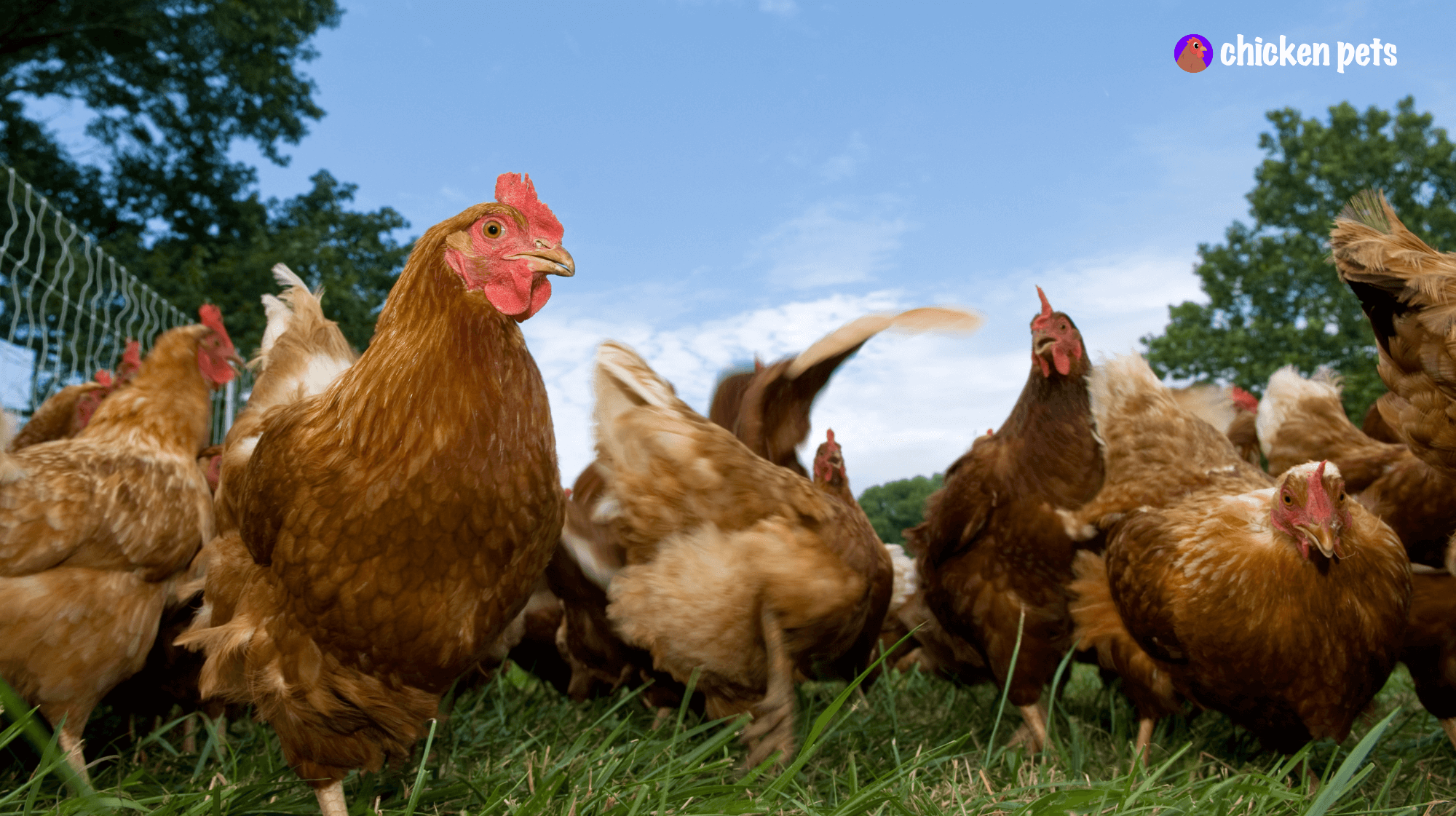
When it comes to chickens, social order is everything. Chickens have a well-defined pecking order, or social hierarchy, within their flocks. This pecking order helps establish dominance and order, reducing conflict and ensuring the flock’s survival.
The Social Hierarchy of Chickens
At the top of the pecking order are the “alpha” chickens, typically the largest, most assertive, and most confident birds. They have the first pick of the food, the best roosting spots, and the right to mate with the roosters. Next in line are the “beta” chickens, who are submissive to the alpha birds but dominant over the lower-ranking members of the flock. This continues down the line, with each chicken having a specific place in the social hierarchy.
Establishing the Pecking Order
Chickens establish a pecking order within the first few days of their lives. The dominant chicken, or “alpha chicken,” is usually the first to eat, drink, and take dust baths. The dominant chicken also gets to perch in the best spot at night. The pecking order can change as chickens grow, mature, or as new chickens are introduced to the flock.
Importance of Understanding the Pecking Order
Understanding the pecking order is essential for backyard chicken keepers because it can help them identify potential issues, such as bullying or aggression, and take steps to address them before they become significant problems. By observing the pecking order, you can also determine which chickens are more dominant and which are more submissive. This can be helpful information when introducing new birds or separating birds for medical treatment.
Minimizing Conflict
Introducing a new chicken to a flock can disrupt the existing pecking order and lead to aggression and stress among the birds. To minimize conflict, it’s recommended to introduce new chickens slowly and in small groups.
The pecking order is a fundamental aspect of chicken behavior and welfare, and backyard chicken keepers need to understand how it works. Doing so can help ensure a happy, healthy, and harmonious flock of chickens in your backyard. A balanced and harmonious pecking order can lead to a calm and content flock, resulting in healthier and happier chickens.
Chick Talk: Decoding the Language of Chickens
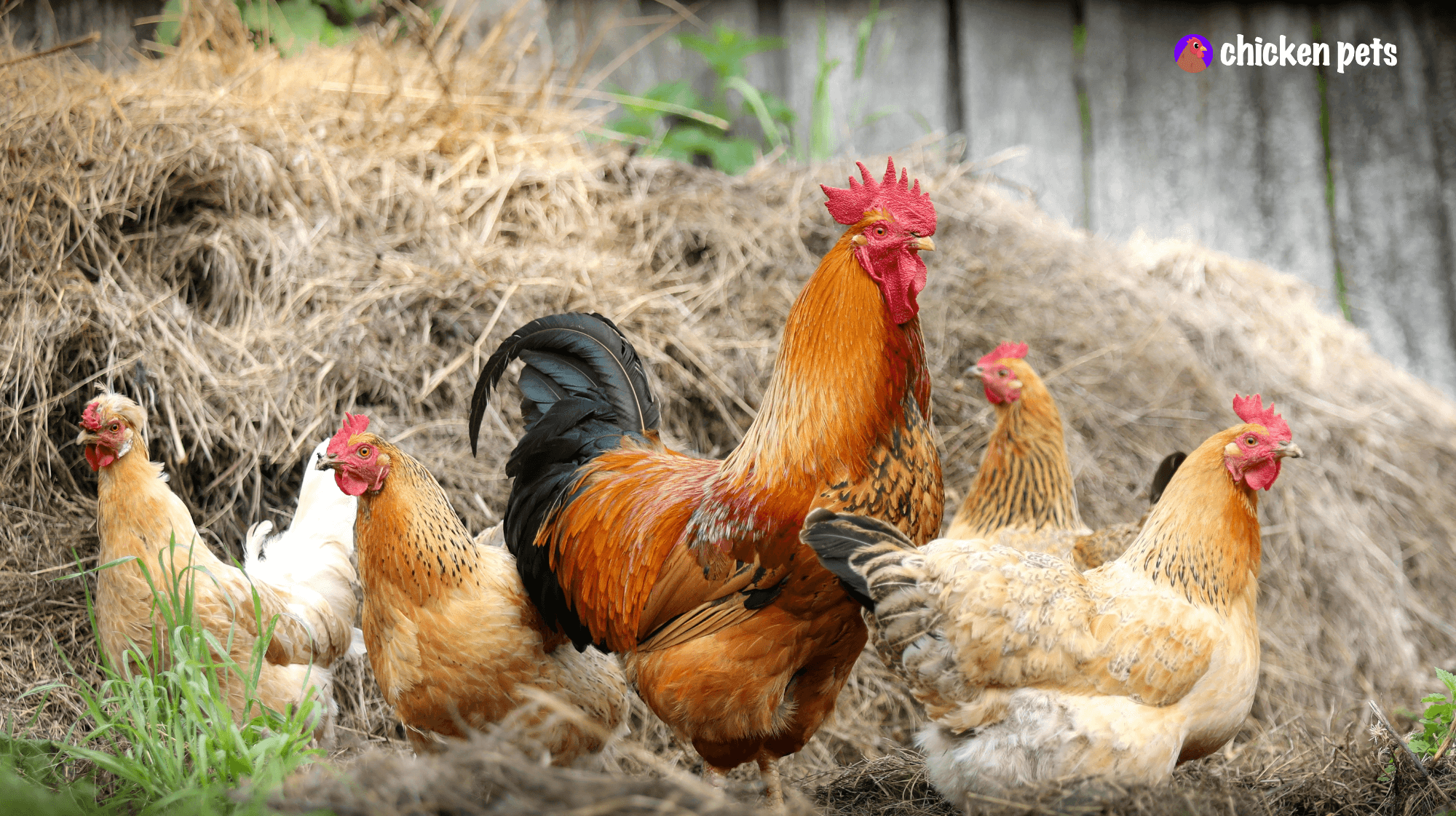
Chickens are communicative, using various vocalizations to convey messages to their flock mates. From contented clucks (soft, cooing “cluck-cluck-cluck”) to distress calls (“kee-kee-kee-kee”), backyard chicken keepers need to understand what their feathered friends are trying to say.
The Happy Cluck: Expressions of Joy
The most common vocalization of chickens is the contented cluck. This is the equivalent of a human saying “ahh” after a satisfying meal. It’s a soft, cooing sound that chickens make when relaxed and happy (“cluck-cluck-cluck”).
Mother Hen’s Love Calls Mother
Hens have specific vocalizations that they use to communicate with their chicks. They use a soft, gentle clucking sound to call their chicks to come to them for food or to be protected (“cluck-cluck-cluck”). They also have a high-pitched alarm call to warn their chicks of danger (“kee-kee-kee”).
Angry Chicken Noises
If you’ve ever heard a chicken make a loud, sharp screech, she’s likely angry about something. Chickens can become mad for various reasons, including being stepped on, feeling threatened, or having their food or space invaded. Understanding why your chickens are angry is essential, as it can help you address the problem and prevent further conflict (“screeeech”).
Chickens Talking to Each Other
Chickens also make a range of sounds when talking to each other. These sounds can be soft, low-pitched clucks or more rapid, high-pitched clucking (“cluck-cluck-cluck”). These sounds are used to communicate and coordinate with their flock mates, a crucial part of how chickens interact.
Danger Calls: Protecting the Flock
Finally, chickens have a set of distress calls to warn their flock mates of danger. These sounds can include a high-pitched alarm call or a rapid, repetitive clucking (“kee-kee-kee-kee”). These calls are designed to alert the flock and prompt them to take action to protect themselves and each other.
So, next time you’re spending time with your backyard chickens, take a moment to listen to their various vocalizations. You might discover a whole new world of chicken communication!
Rooster Ruckus: The Alpha Males of the Flock
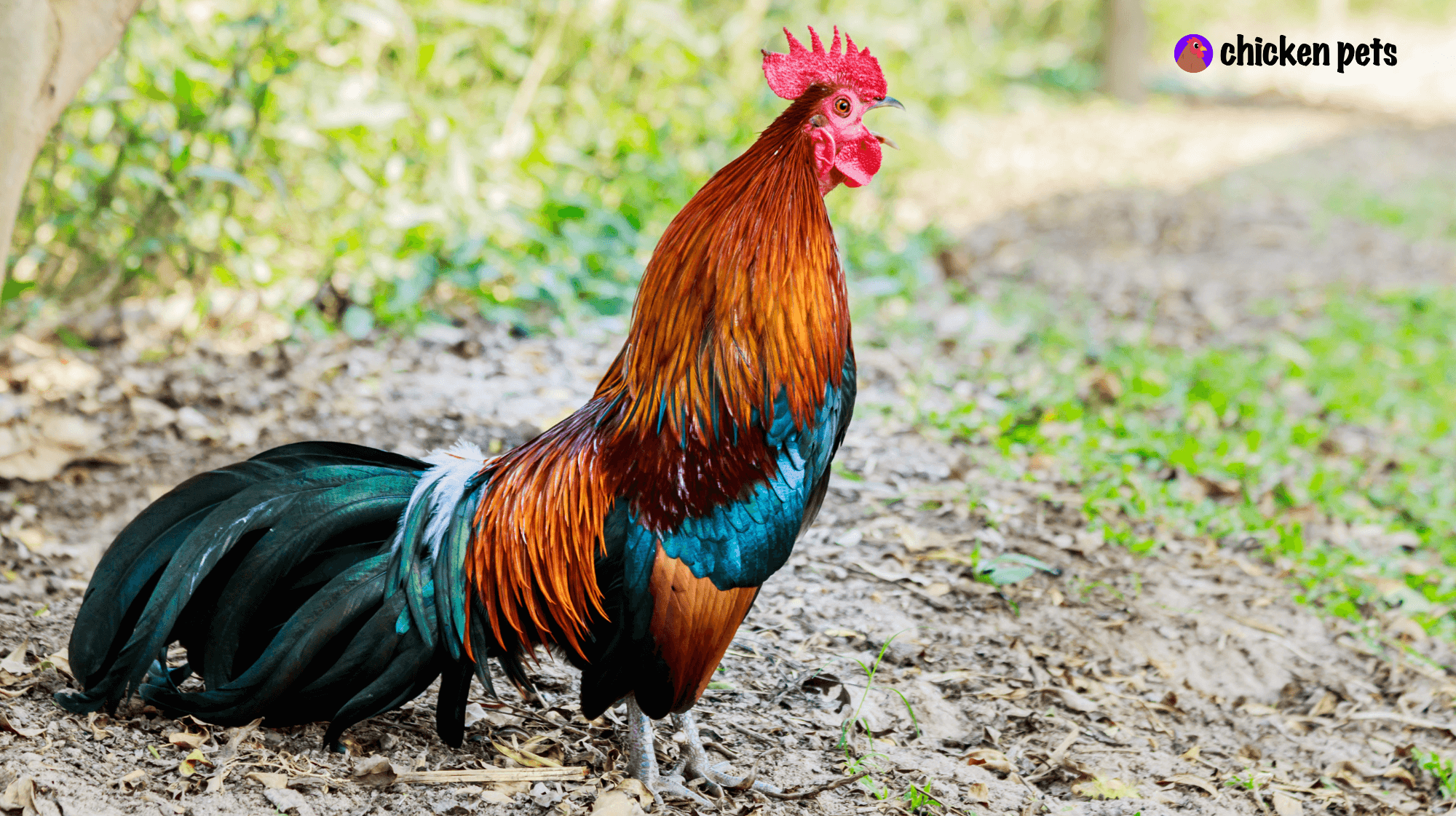
Roosters are an essential part of any backyard chicken flock. Not only do they add a touch of charm with their colorful feathers and unique vocalizations, but they also play a crucial role in maintaining flock dynamics. So, let’s take a closer look at these alpha males and what makes them so unique.
The Rooster’s Role in the Flock
Roosters protect their flock, constantly watching for danger and sounding the alarm if necessary. They also help establish and maintain the pecking order among the chickens. Roosters are generally known for their confident and assertive personalities and often take charge of the flock.
Tidbitting: The Art of Courtship
One of the most exciting behaviors performed by roosters is called tidbitting. Roosters use this specific type of vocalization during courtship to attract a mate. They make short, high-pitched calls accompanied by head bobs and tail flicks. It’s quite a display, and it’s sure to catch the attention of any nearby hens.
Tricksters in the Coop
Roosters can also be quite mischievous and play a few tricks on their human and feathered friends. They might try to steal food from the hens or hide their eggs to protect them from being taken. Roosters can also be very territorial and may try to assert their dominance by pecking at or chasing other chickens.
In conclusion, roosters are fascinating creatures that bring a unique dynamic to any backyard chicken flock. From their confident personalities and protective instincts to their courtship displays and trickster antics, roosters will keep things interesting. So, if you’re considering adding a rooster to your backyard flock, be prepared for excitement and a lot of character!
Dealing with Naughty Chickens: Understanding Bad Behavior
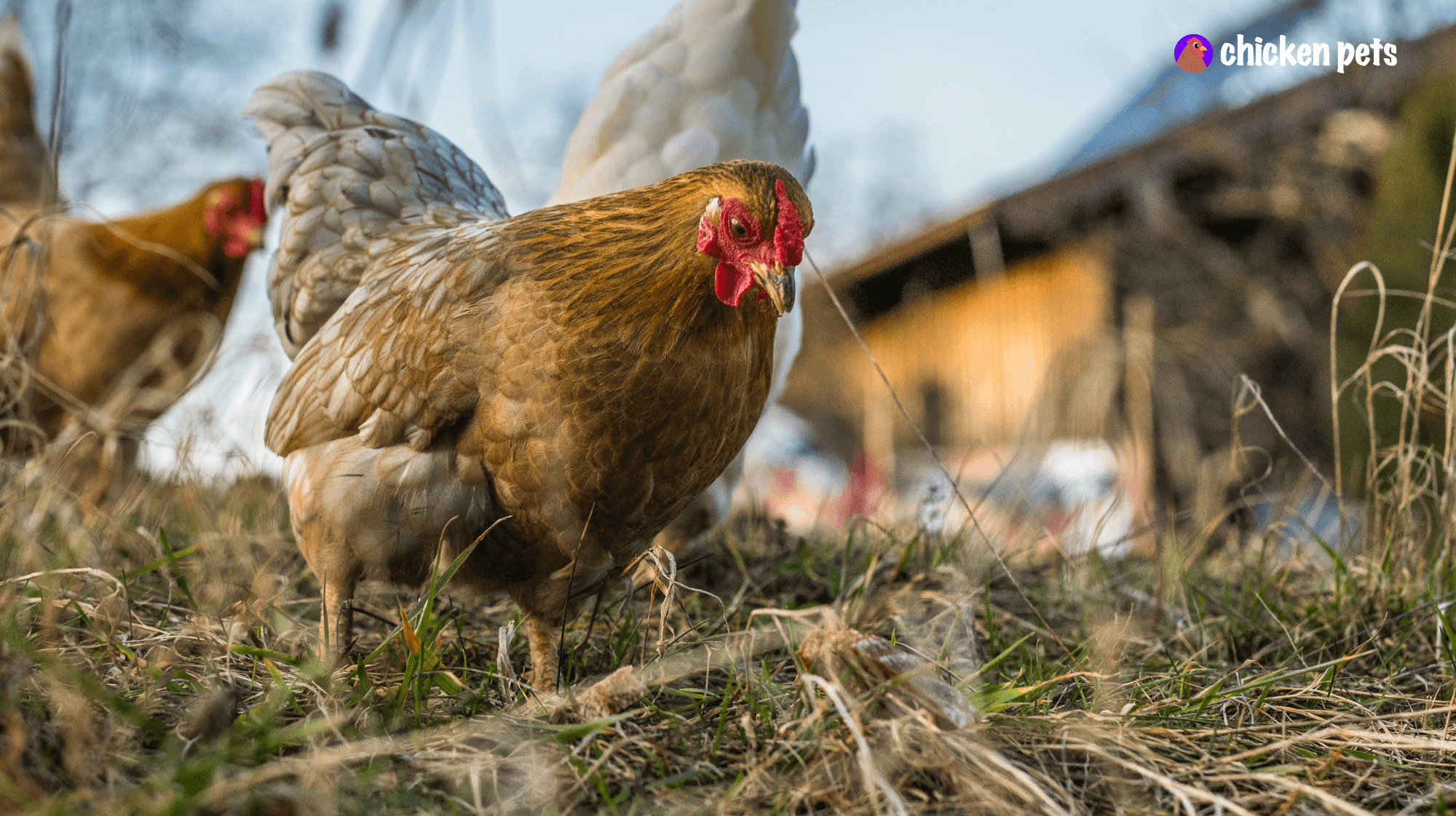
Ah, chickens. They’re charming, silly, and full of surprises. But, just like any other animal, chickens can sometimes engage in less desirable behaviors. But don’t worry, as a future backyard chicken keeper, you’ll be equipped with all the knowledge you need to deal with these mischievous feathered friends.
“Egg-scruciating” Egg Eating
You may have heard the horror stories – one day, you go out to collect eggs, and to your surprise, the eggs are missing! After a little investigation, you discover your chickens have been snacking on their eggs. This can be a frustrating and costly problem, but it’s also common. Chickens may start eating eggs because they’re bored, stressed, or because they’ve developed a taste for the calcium in the shells. To prevent egg-eating, try providing your chickens with plenty of entertainment, reducing stress, and ensuring they have enough calcium in their diet.
Aggression is a “Cluck” of the Past
Chickens are social creatures, but like people, sometimes they don’t get along. Aggression between chickens can range from minor squabbles to full-blown brawls, and various factors such as dominance battles, overcrowding, or hormonal changes can cause it. To prevent aggression, ensure your coop is spacious enough for your flock, and consider separating chickens who consistently fight.
Pecking Order and Henpecking
In a flock of chickens, there is a pecking order, which determines which chickens are at the top and which are at the bottom. The top chicken is known as the alpha, while the others are known as beta, gamma, and so on. Unfortunately, the alpha chicken sometimes takes her role too seriously and begins bullying the other chickens. This is known as henpecking and can lead to an unhealthy and unhappy flock. To prevent henpecking, ensure enough space and resources for your chickens, and consider separating consistently bullied chickens.
Putting an End to Chicken Bullying
Bullying on chickens can have a severe impact on the health and happiness of your flock. If one chicken is being consistently picked on, it’s crucial to take action to protect her. This could mean separating the bully and the victim or providing more space and resources for the whole flock. These steps will help ensure your backyard flock is happy, healthy, and harmonious.
Common Chicken Behaviors: Understanding Your Feathered Friends
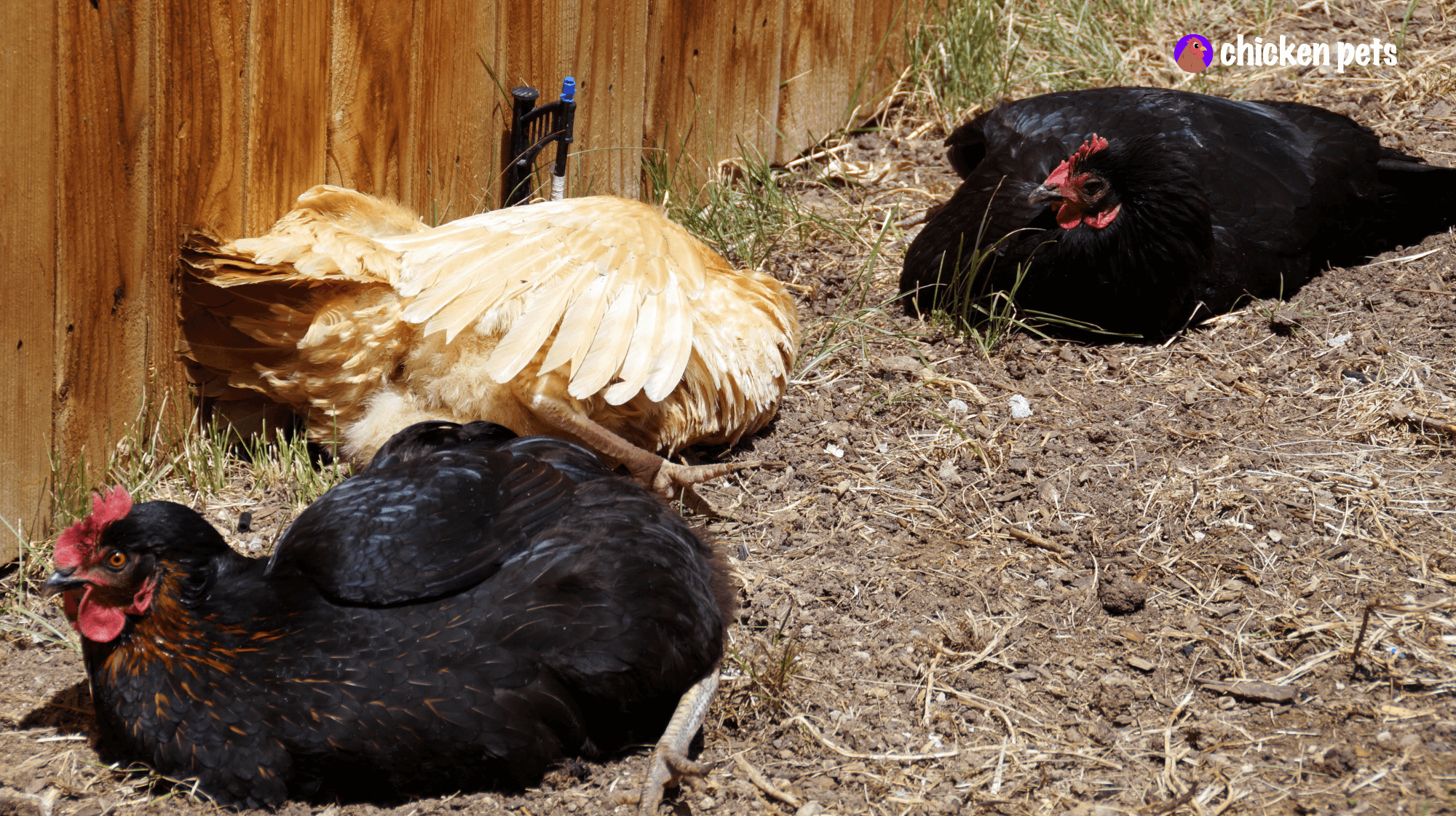
Chickens are fascinating creatures, and their unique behaviors are just as interesting as their vocalizations. If you’re planning on becoming a backyard chicken keeper, it’s essential to understand the various behaviors that your feathered friends might exhibit. Here’s a rundown of some of the most common chicken behaviors:
Foraging Frenzy: Scratching for a Living
Foraging is a natural behavior for chickens, as they are omnivores that enjoy searching for food. Whether it’s scratching the ground for seeds, grubs, or insects or pecking at plants, foraging helps keep chickens busy and healthy. This behavior also aids their digestion and allows them to wear down their beaks, which grow continuously throughout their lives.
Moulting Madness: Featherless Frenzy
Molting is a process that occurs periodically in chickens where they lose their old feathers and grow new ones. During this time, they may become grumpy, as they can feel itchy and uncomfortable. They may also stop laying eggs and spend more time roosting and preening their new feathers. Molting is a normal and necessary part of a chicken’s life cycle, but watching their behavior during this time is vital to ensure they are healthy and comfortable.
Dusty Delight: A Cleaning Frenzy
Chickens love to dust bathe, a behavior where they roll around in the dust or sand to clean and remove any unwanted parasites from their feathers. This behavior helps keep their feathers in good condition and is also an excellent way to stay cool on hot days. Chickens enjoy sunbathing, which helps them produce Vitamin D, essential for their overall health and well-being.
Preening Perfection: A Grooming Frenzy
Preening is a behavior where chickens clean and rearrange their feathers. They do this to ensure their feathers are in good condition and to remove unwanted parasites. Preening is also a social behavior that chickens engage in with their flock mates. They reinforce their bonds and maintain a healthy, cohesive group by preening each other.
Fighting and Sparring: Pecking Order at Play
Fighting and sparring are behaviors that chickens engage in to establish their pecking order, or hierarchy, within their flock. These behaviors are usually not aggressive but simply for chickens to determine their place in the flock. The pecking order is important because it helps reduce conflict within the flock, as each chicken knows its place and what to expect.
Cuddle Time: Snuggles with Your Feathered Friends
Contrary to popular belief, chickens can form close bonds with each other and even with their human keepers. Cuddling behavior, where they huddle together on a roost or perch, is a way for chickens to show affection and reinforce their social bonds. This behavior is also a way for them to stay warm and protected, as they instinctively huddle together for safety.
Perch Parties: High-Flying Fun
Last but not least, chickens love to jump up and perch. This behavior is known as perch parties, and it’s an excellent way for them to enjoy being up high and get some exercise. Perch parties are a fun and playful behavior, and it’s a joy to watch your feathered friends enjoy themselves.
Creating a Stimulating Environment for Happy and Healthy Chickens
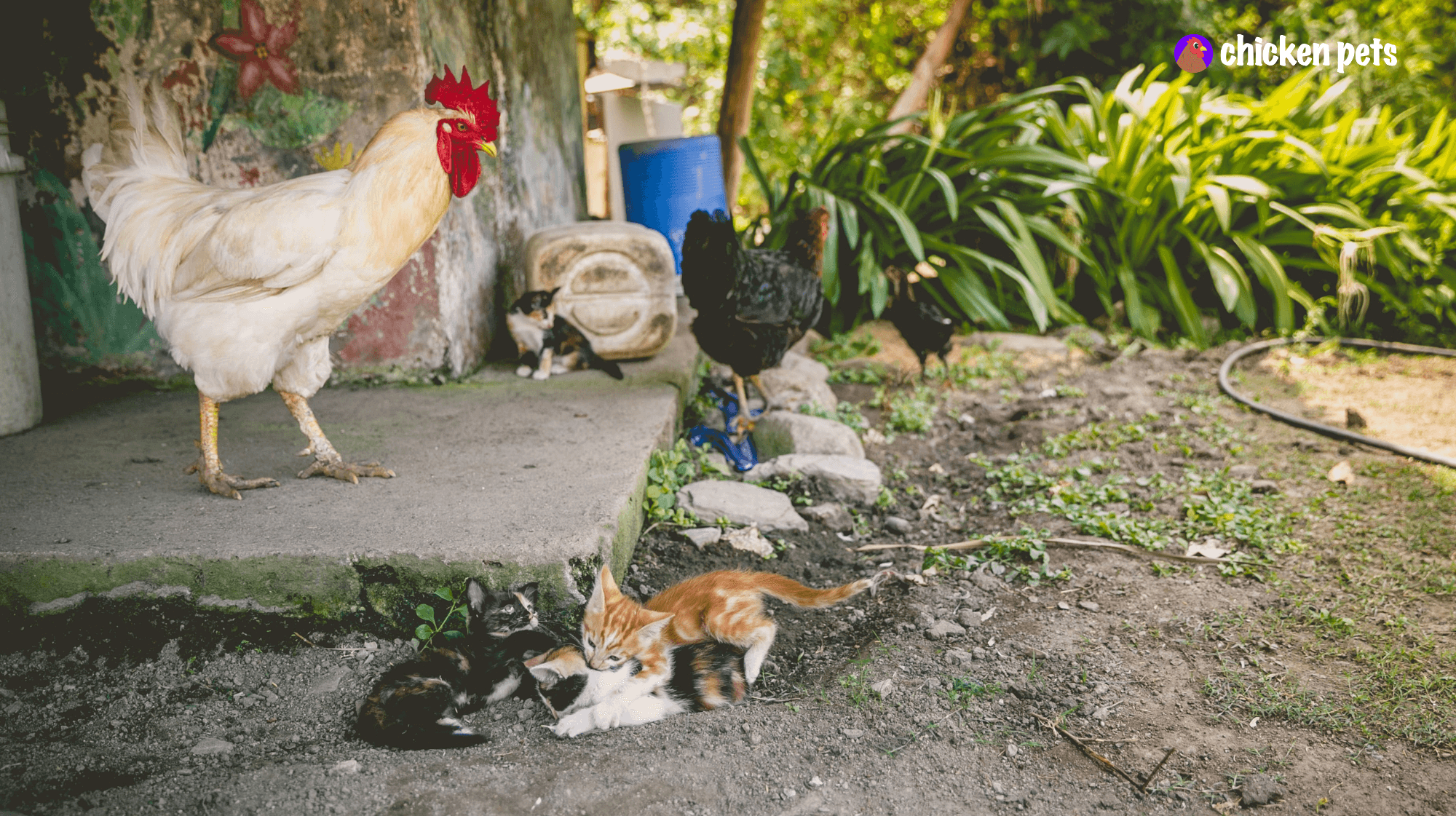
As backyard chicken keepers, we must ensure our feathered friends live a happy and healthy life. And what better way to do this than by providing an enriched environment that caters to their curious nature?
Chickens are naturally curious creatures and love to explore their surroundings. They are constantly pecking and scratching at objects, trying to figure out what’s what. This is why providing them with physical and mental stimulation through environmental enrichment is crucial.
Give Them Something to Cluck About: Physical Stimulation
A physically enriched environment can include plenty of hiding spots, roosts, and perches for climbing and exploring. This can also include occasionally adding new items to the coop to keep things interesting. Bales of hay, cardboard boxes, and PVC pipes are great options for your chickens to scratch, peck and investigate.
Mental stimulation is as important as physical stimulation to keep your chickens happy. Chickens love to play with exciting objects like toys, mirrors, and even bells. And who wouldn’t love a good xylophone in their coop? These objects provide entertainment for the birds and help keep their minds active.
Enrichment for the Win
So, whether it’s through physical or mental stimulation, providing an enriched environment is a great way to keep your chickens healthy, happy, and entertained. Who knew being a backyard chicken keeper could be so much fun? Get creative, and let the enrichment begin!
Understanding the Minds Behind the Feathers
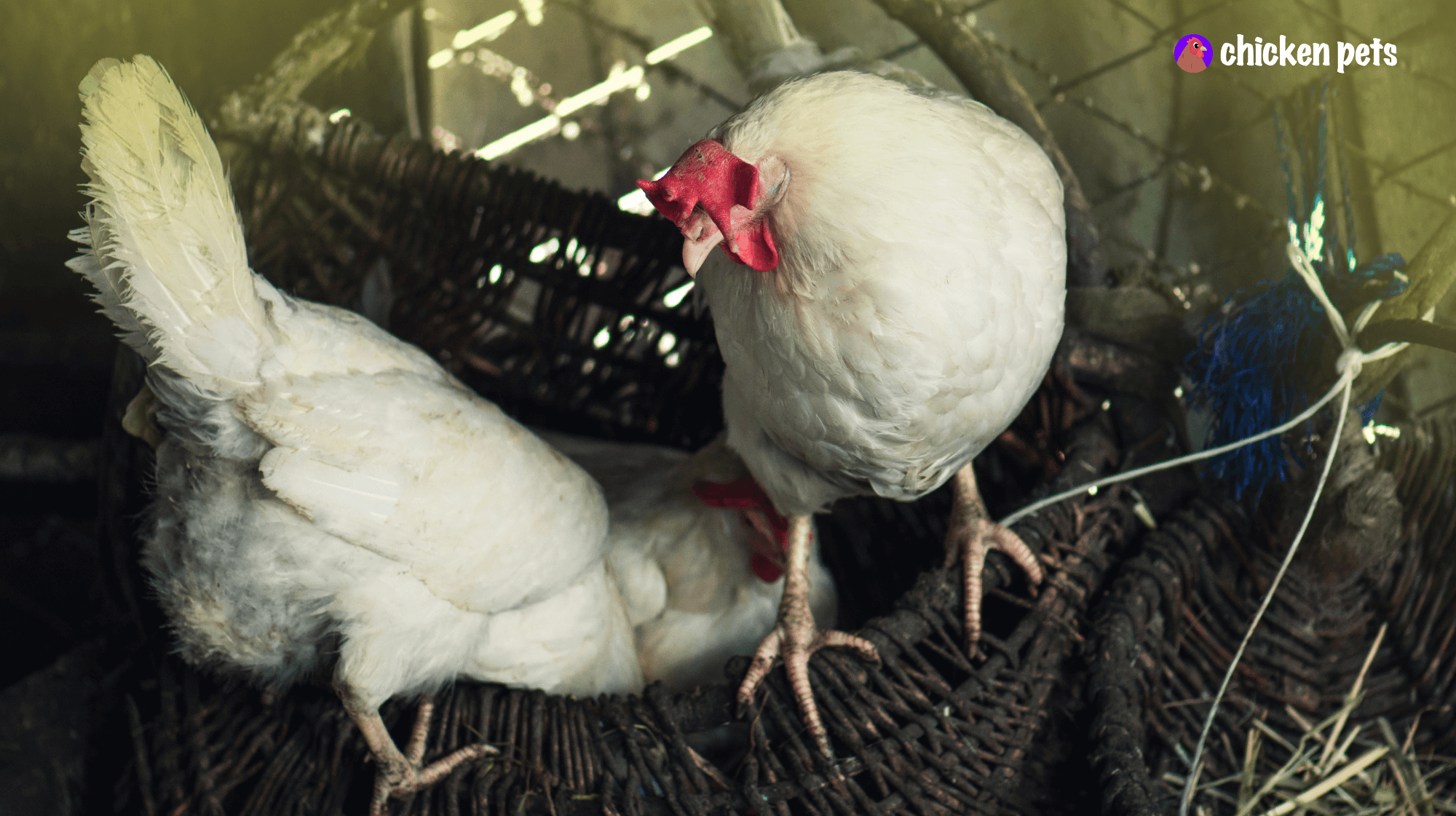
This chapter explores the fascinating world of chicken psychology and the behaviors that make these feathered friends unique. From the role of roosters in a flock to the significance of dust bathing and preening, we’ve uncovered how chickens interact with each other and their environment.
It’s important to remember that while chickens may seem simple on the surface, they are complex creatures with personalities and quirks. Understanding their psychology is critical to keeping them healthy and happy.
So, as a future backyard chicken keeper, take the time to learn about the birds in your coop. You may be surprised by how much more there is to these feathery friends than meets the eye! Whether it’s through providing them with an enriched environment or simply observing their interactions, the more you understand chicken psychology, the better you’ll care for your feathered friends.
The article is a chapter from our book. Keep reading the chapters below.

- Backyard Chickens: The Beginners Guide
- Chapter 1: Raising Chickens in Your Backyard. Pros, Cons, Costs
- Chapter 2: Chicken Coops. Components, Buying, Building
- Chapter 3: Chicken Breeds for Beginners. Where to Start
- Chapter 4: Baby Chicks. Everything You Need to Know
- Chapter 5: Feeding and Watering Chickens Ultimate Guide
- Chapter 6: Chicken Health and Hygiene: The Master Guide
- Chapter 7: Chicken Eggs. The Incredible Edible Egg!
- Chapter 8: Chicken Psychology and Behaviors
- Chapter 9: Chicken Shit. Quality, Consistency, Color, Smell

